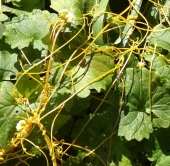


The state of Washington is the first in the union to start “composting” dead human bodies as crop “fertilizer,” bringing to real life the fictitious scenario depicted in the famous dystopian film Soylent Green.
According to reports, Washington’s Senate and House of Representatives approved with strong bipartisan majorities Bill 5001, entitled, “Concerning human remains,” which was signed into law by Governor Jay Inslee, legalizing the “natural organic reduction” of human remains.
Bill 5001 will take effect on May 1, 2020, allowing for human corpses to undergo a process known as “liquid cremation,” whereby alkaline hydrolysis is used to turn rotting flesh and bones into an “organic fertilizer” sludge.




